The Inevitable Fate of Hong Kong and the Slippery Slope for China
The oxymoron of the 1 country 2 system had always been a time bomb that threatens to blow up. And with Hong Kong, this powder keg is more destructive than anyone would be willing to admit.
As the protest rage on in Hong Kong since it started in March 2019 at the point of writing of this article, its probably nigh time for me to address the grim future that’s to come, which in my opinion, is inevitable.
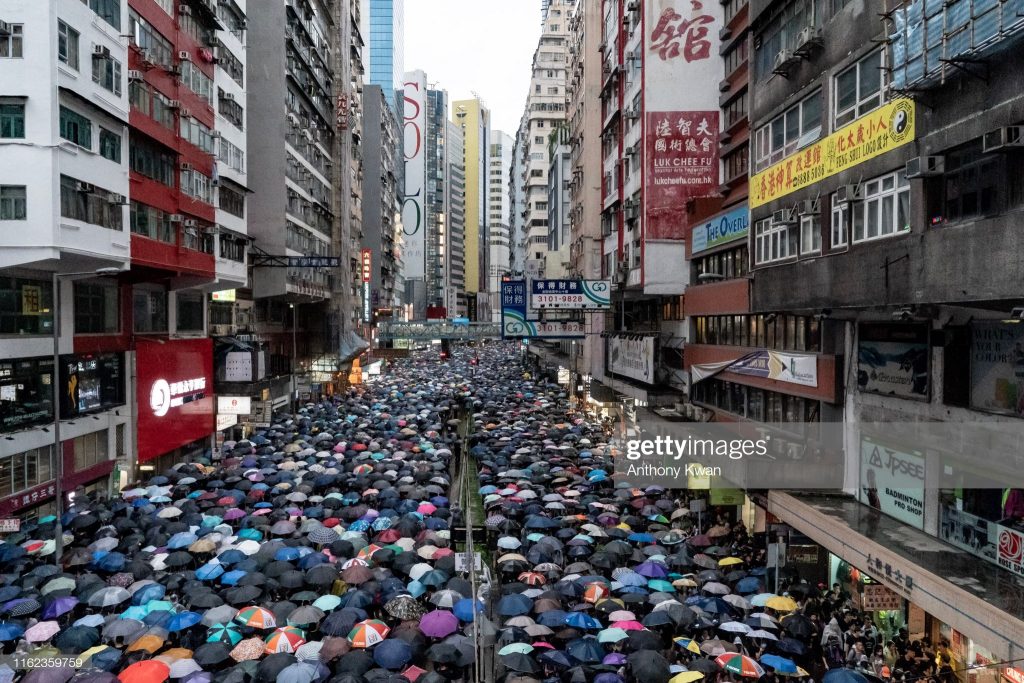
THE HONG KONG PRIDE (OR EGO)
Hong Kong returned to China in 1997 after being a British colony since 1842 in the aftermath of the First Opium War. Ever since becoming a colony, Hong Kong had been the special place in China (along with Macau), that represents “an escape” for Chinese from the tumultuous life in one of the worst period of time to live in China’s history (late Qing, to revolution, to civil war, to Japanese aggression, back to civil war). Hong Kong is also the exit point for countless Chinese that eventually lands in the United States, South East Asia, and Europe – starting new diaspora that made huge differences to the countries they called their new home.
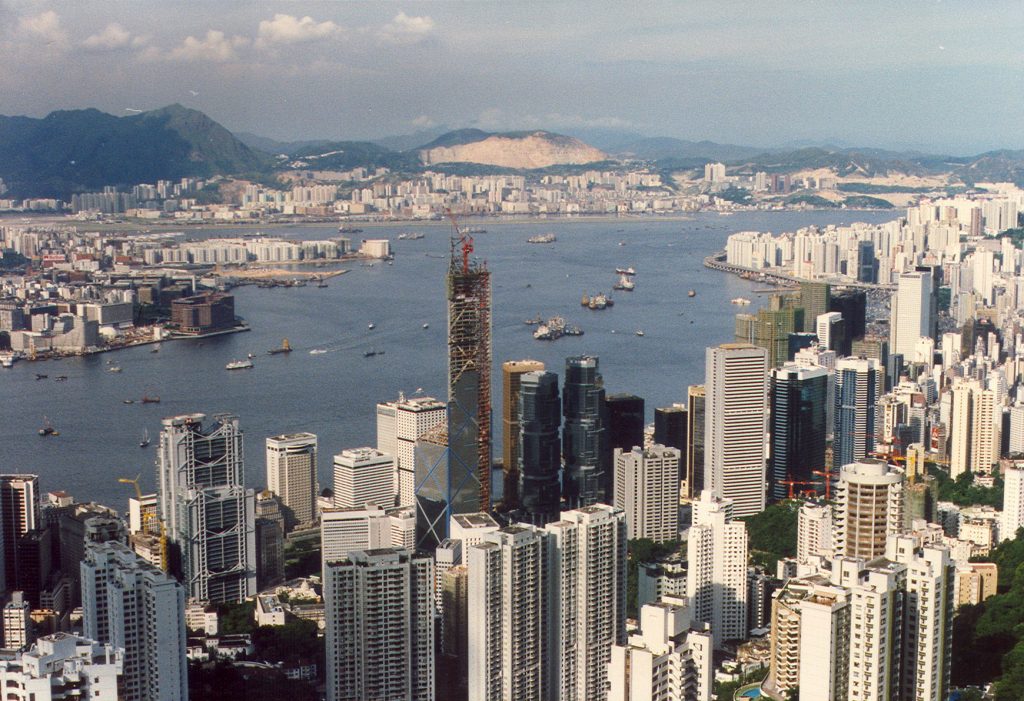
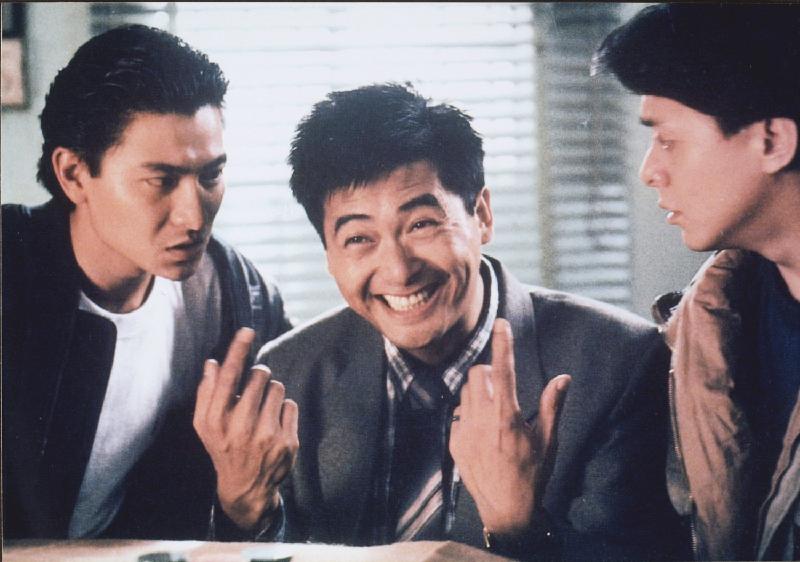
The “Golden Age” of Hong Kong cinema is now but gone…
In contrast of with the communist China next door (before they opened up), Hong Kong quickly became the “Pearl of the Orient” and a major financial center (which they still are today). China Chinese in China look at Hong Kong in envy and admiration, wishing they are Hong Kongers, living the glitzy awesome life they saw in the Hong Kong dramas and movies they digested during the golden age of Hong Kong cinema (even during the first 2 decades after Deng Xiaoping led China had opened up its economy).
And it is in such a unique position for Hong Kongers, that Hong Kong is returned to a rising China. The people of Hong Kong are proud of their heritage, their history, what they represented in the past 100 years, and what they were at the point of the handover – the magnificent metropolis and financial powerhouse of a city that is the envy for most of the world.
They are perhaps also the only Chinese people in the world that studied and preserved the language of Cantonese within their education system (and they are proud of it) and culturally powerful as all Chinese people in Asia views Hong Kong shows, dramas and movies as the “best” within the “Chinese World” (Sorry Taiwan).
But it is also this pride that is the heart of the problem as Hong Kong had to “endure” the “humiliation” of being ruled by a perceived “lesser people” (no offense); while at the same time, were generally proud to be subjects of the British Crown, under the United Kingdom flag.
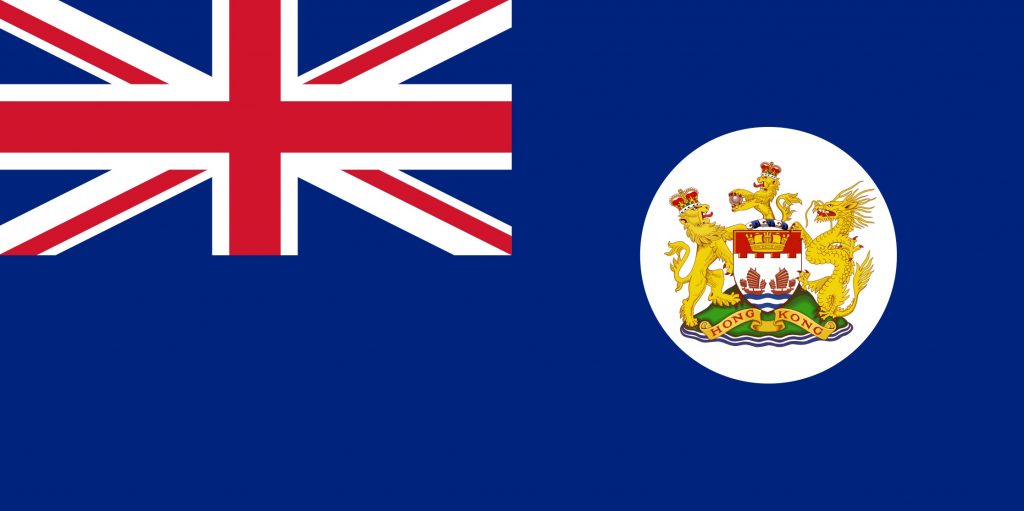
Hong Kong had this love-hate relationship with the British, as they suffer from some varying degree of “white superiority complex” (thinking that Caucasians = good/better ; something that afflicted Singapore too, although to a much lesser degree today in Singapore); while they also resent the rule of the British, as shown in countless drama and movies, of the perceived/actual corruption and biases of the British leaders in power in Hong Kong. But its also very convenient for the Hong Kong people to just point the fingers to blame the British for any problems and issues facing them – thus allaying any if not, most faults from themselves.
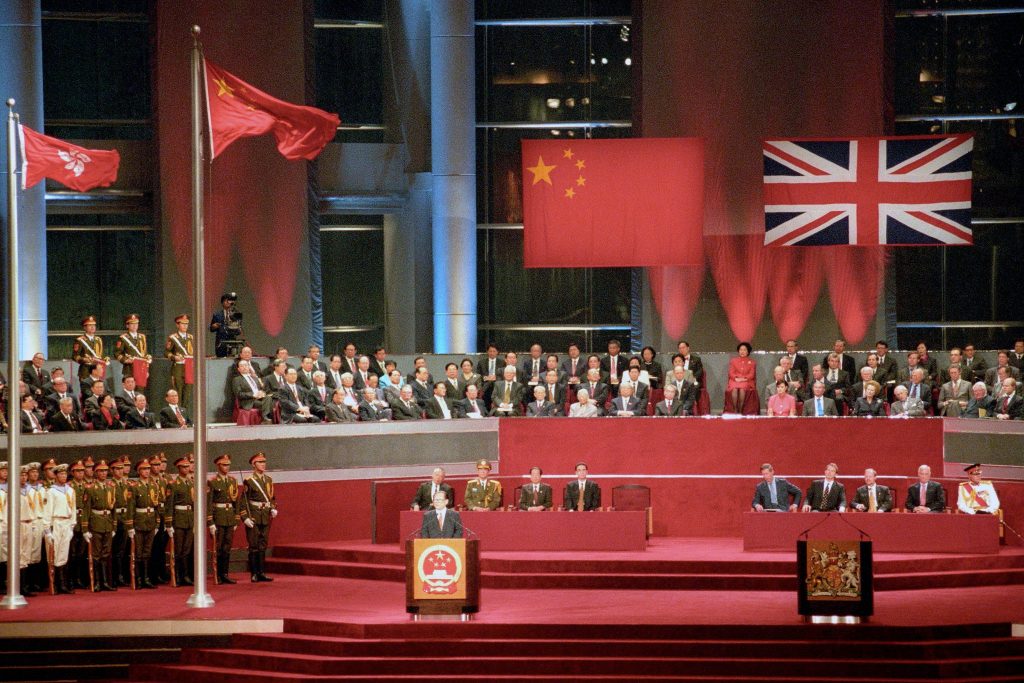
July 1997: The “Dreaded” / “Celebrated” Handover. Depending on who you asked.
Torsten Blackwood/Agence France-Presse — Getty Images
NO ONE TO BLAME
But as they now lived under the red Chinese flag, they found themselves in a weird position of being ruled by people that aren’t very different from themselves (racially speaking), despite having huge amount of autonomy (in fact, its the same amount of autonomy as when they were a British colony) and finding it conflicting as they try to find a scapegoat for the tougher and tougher life due to increasing cost of living and shrinking unaffordable houses – a problem that had been around since before the handover.
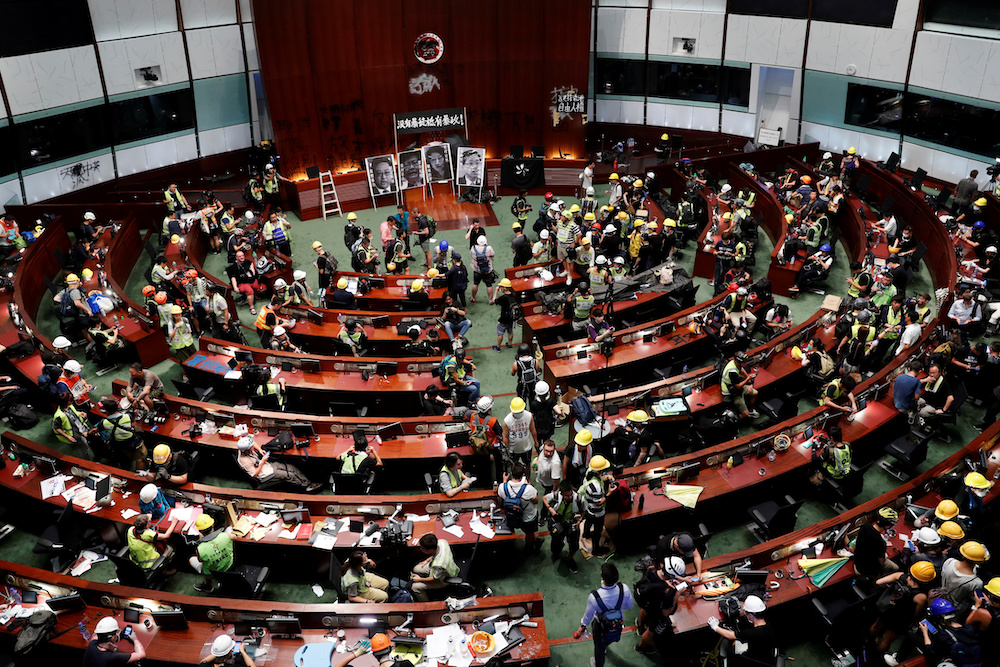
The oxymoron continues, as China becomes a global economic power while Hong Kong seemingly stagnated, relatively speaking. Chinese tourists flooded the city as they grow more affluent, something that the Hong Kong people feel pretty uncomfortable with.
“How can they be holidaying and spending money here, while I’m stuck working long hours and unable to take leaves, struggling with my daily life”, must be a common thought by many Hong Kongers.
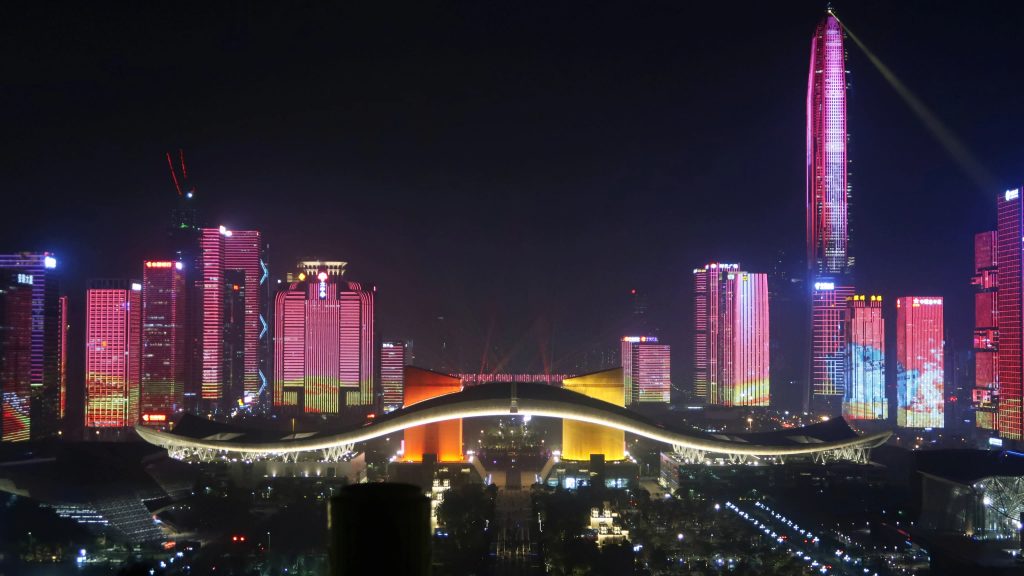
Photo by Reuters
The cognitive dissonance is shown on many faces and attitudes of Hong Kong shop keepers and services staffs, until it is widely known by the people of the Guang Dong province (the Chinese province next to Hong Kong), to never speak Mandarin in Hong Kong, only exclusively Cantonese – so that the staffs will have trouble identifying them as China Chinese, so to receive better service. Many China Chinese just decides to stay away from Hong Kong after their experiences.
THE DELUSION
And it is under such a social climate, that some Hong Kongers start to dream of independence. Political movements begin to stir and gain momentum… until it was shut down by the Chinese Government with the banning of the Hong Kong National Party. It is anyone’s guess, how Hong Kong can ever become an independent country, without a standing military, while under the sovereignty of an utterly powerful China.
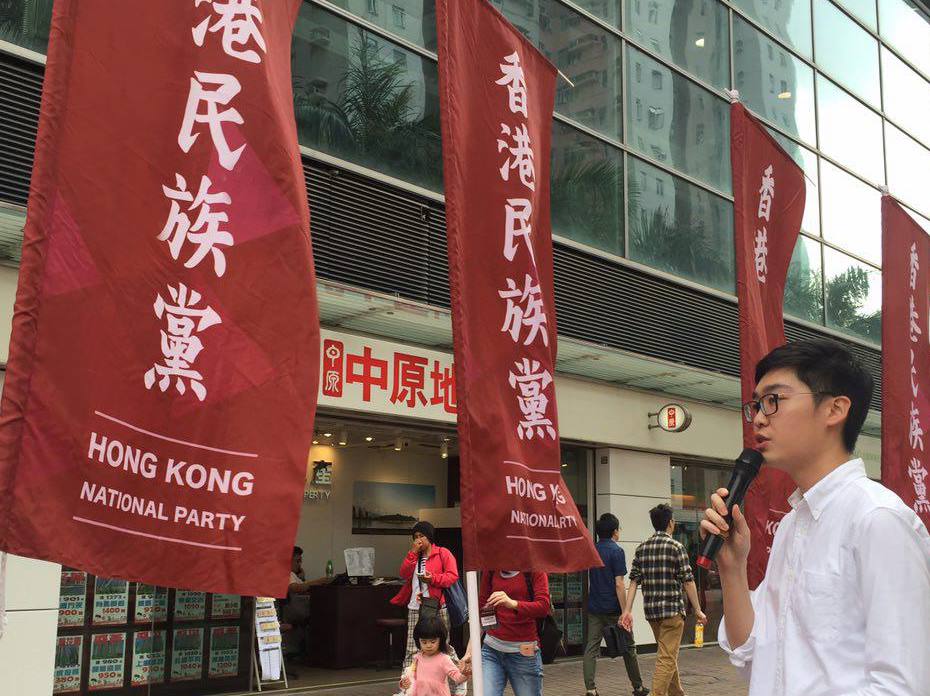
Photo: Hong Kong National Party via Facebook.
The People’s Republic of China is not a party to be trifled with, as shown on multiple occasion, especially the famous case of the Tiananmen Incident in 1989. China would not shy to using force against civilians, even if it means killing them with live rounds, to protect the entirety of their sovereignty and securing the political stability for the Chinese Communist Party. I strongly believe the same applies to “the Hong Kong issue”.
As of this writing, it was reported on multiple media sources (including President Trump’s tweet) that the Chinese military is now deployed in Shenzhen, preparing for the “worst”. How Hong Kong is going to resist against the People’s Liberation Army (PLA) without someone (or many people) dying, I have no idea.
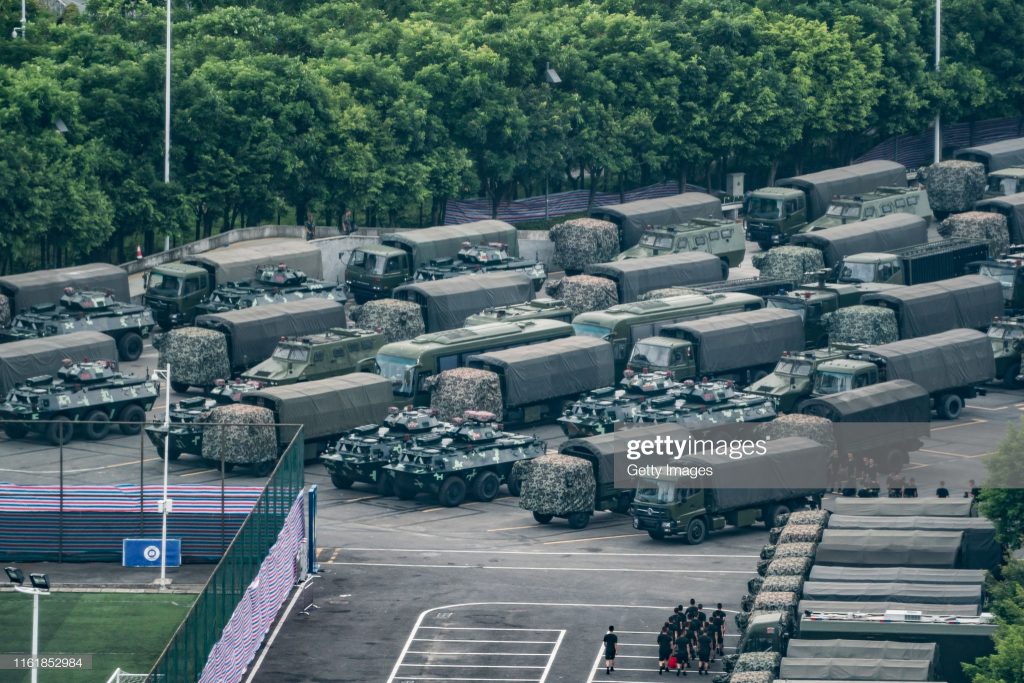
TRUE REUNIFICATION
Hong Kong lives under the “1 Country 2 System” currently. However, very quickly, we are already 20+ years into the 50 years agreement. While it is “anyone’s guess” what will happen at the 50 years mark, it is of my opinion that, without a doubt, China will force Hong Kong, into the socialist system, and declaring an end to the “1 Country 2 System” policy for good – heralding the age of “True Unification with Hong Kong”.
It is not exactly in China’s interest for Hong Kong to become a runaway success in the “1 Country 2 System”, as the contrast between the 2 systems will be apparent to the people; the increased connectivity resulted in the outflow of a lot of Hong Kong’s economy into neighboring Shenzhen and Dongguan. While Hong Kong’s economy did continue to grow under Chinese rule; relative to China, Hong Kong looks like it had stagnated. A good example is how, the “little brother” Shenzhen, had surpassed Hong Kong’s GDP in 2017, becoming the 3rd largest economic output among the cities in China (just behind Beijing and Shanghai) – all accordance to CCP’s hopes and plans.
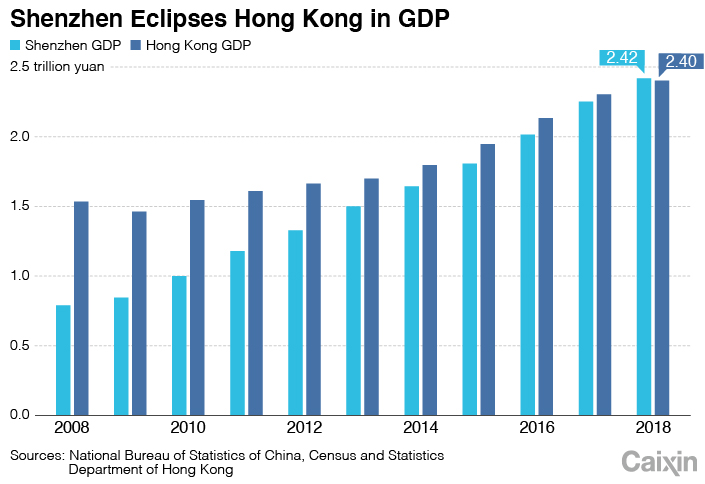
Image: caixinglobal.com
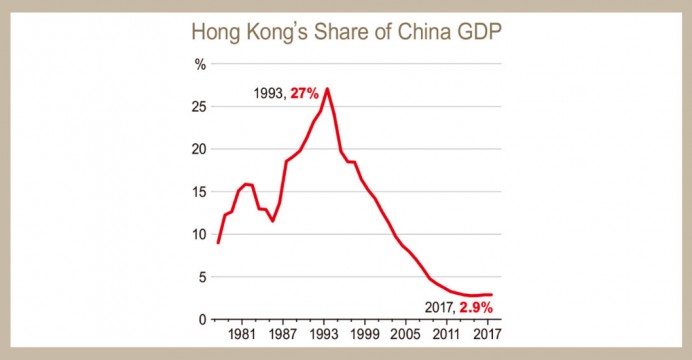
Image: ejinsight.com
Hong Kong had proven to be the “bad boy” of China, as they continue to “stir trouble” for the Chinese Government. And I believe, Beijing can’t wait to “reclaim” Hong Kong in its entirety earlier than the 50 years marked as per agreed in the Sino-British Joint Declaration. The direct rule by the Central Government on Hong Kong could easily crush any dissent, and with just the population of 7-8 million people within a small land area, Hong Kong would not be able to resist should the China clam down on the territory.
THE TIME BOMB
Thus the current rioting/protests are setting Hong Kong nicely onto a difficult crossroad, an inevitable situation which I believed will always happen, but happening at least a decade earlier than I had expected: a Hong Kong independence attempt (and failing at it) and a crushing of the dissent by China (and get internationally condemned for it).
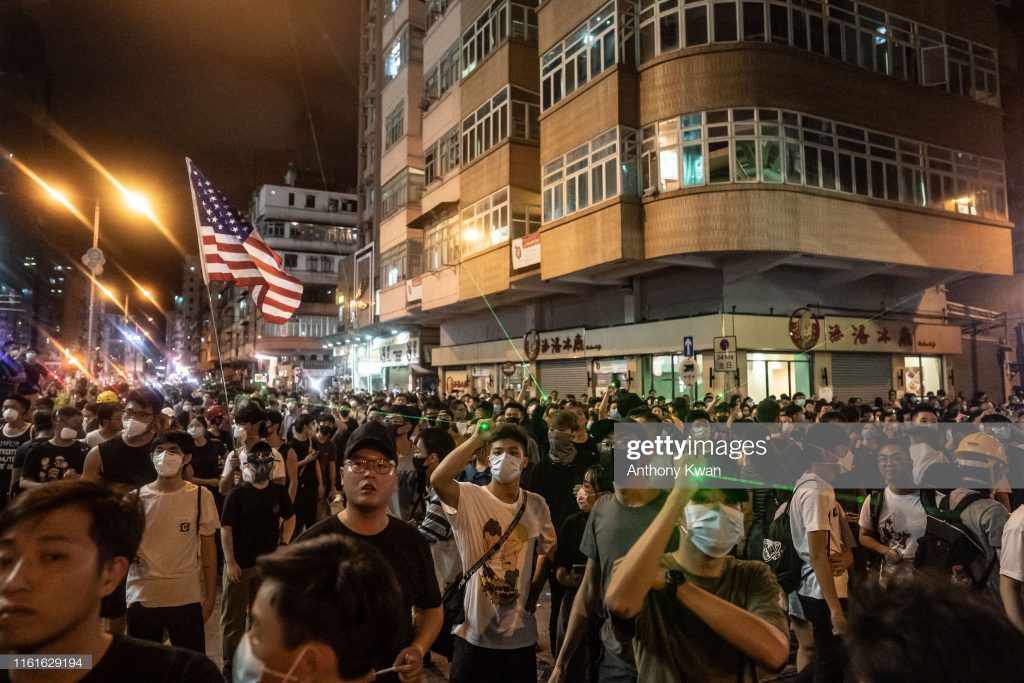
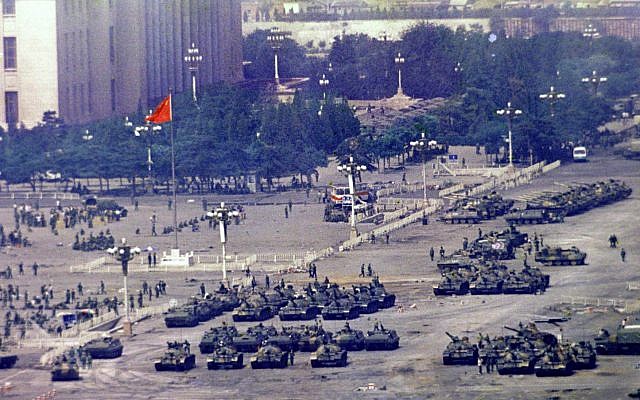
What is happening in Hong Kong is reminding everyone of this incident which China tries really hard to forget. (AP Photo/Jeff Widener, File)
It is almost written in the stars, that Hong Kong will always eventually try to negotiate for complete autonomy (while forgetting that the mandate for China to keep their “democratic Hong Kong democratic” is only up to the year 2047). And equally predictable, China is very unlikely to allow Hong Kong to continue to be on a different political system beyond that 50 years mark. This two “ideas” are polar opposites and is definitely going to clash at some point.
And given the current “troubles” Hong Kong is “stirring”, the risk of Hong Kong “poisoning” the rest of China with “sacrilegious ideas”, the temptation for China (given their immense power), is to suppress Hong Kong and transmute it into just another Chinese city. The only thing holding China back is the international trade and relations they had painstakingly built up over decades, especially in the backdrop of rising “anti-China hysteria”, forcing their restraint on unleashing all that power they possess onto the city.
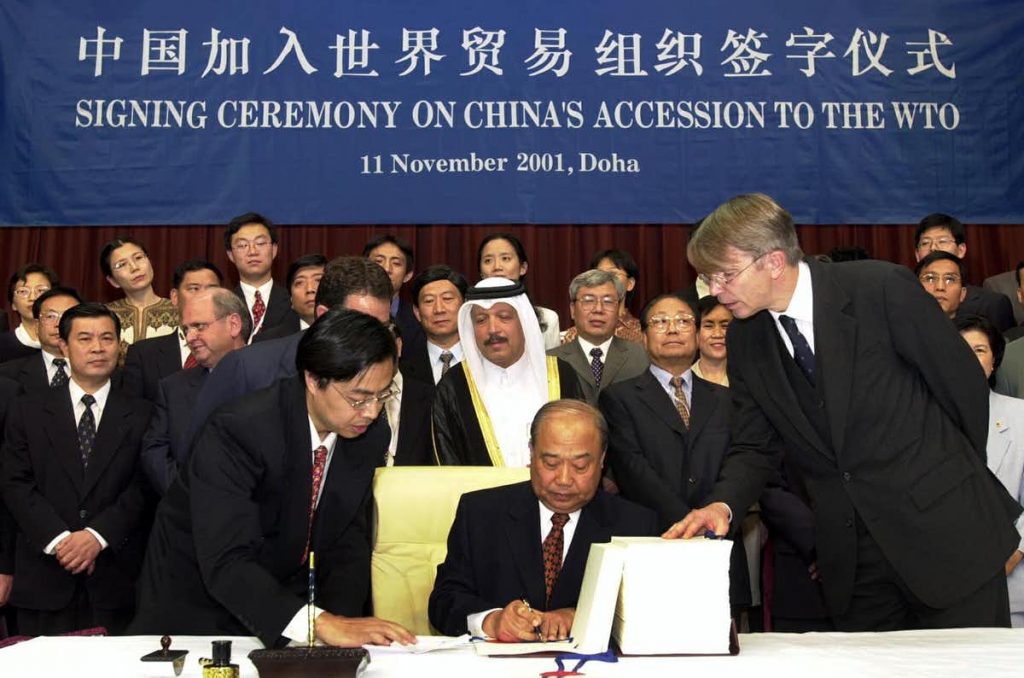
THE TRIGGER
I believe there are several fundamental reasons the protests/rioting against the Chinese rule is happening now:
1.) the impatience of China under Xi Jinping that overturned the advocated “strategic patience” by Deng Xiaoping, that was practiced by leaders before Xi Jinping;
2.) the emergence of Trump as the US President that brought a return of a strong assertive United States.
3.) the shutting down of Independence Movements “prematurely”
As mentioned previously, Hong Kong people are a proud bunch of people, and they pride upon the “democracy and freedom” afforded to them since the British colonial times. It will be extremely difficult for anyone who is given “freedom”, to be then subjected under a totalitarian regime. Thus the general revolt by Hong Kong people against “fully returning” to China is always going to slowly boil to a tipping point.
I always thought it might happen closer to the 50 year mark, maybe in around another 10 years or 20 years at the 30 years or 40 years mark (its currently 22) – however, thanks to point number 1: the impatient China under Xi Jinping, the occurrence of this “expected” “rebellion” is accelerated (being impatient is the same reason China is getting increasingly criticized, distrusted and isolated due to various issues, and thus the Trade War that is currently being wage by the United States against them).
And with the emergence of Trump’s United States as the counterbalance after almost a decade of geopolitical neglect against China’s growing influence and increasing aggression against any countries that stood in their war, China is once against on their back foot, as they struggled to keep up with the rapidly changing geopolitical realities, with Trump leading the way to reform the world order. China’s positions are weakening on many fronts, and its economy is struggling to keep up with the relentless pressure from the United States (and to a lesser extent, the European Union).
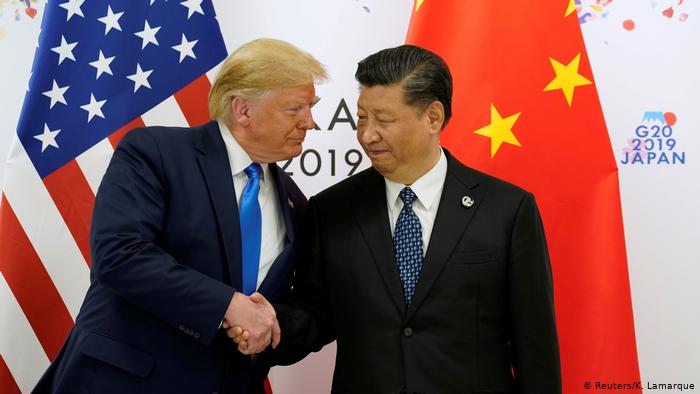
The impatience of China to not allow the Independence Movement to run its course (to a dead end) and attempts to enact legislation (even threatening to bulldoze through to getting it passed) that would technically allow China to arrest anyone they want in Hong Kong – pushed Hong Kong to its breaking point. Coupled with a “geopolitically weakening China” due to an assertive United States, Hong Kongers perhaps sense that this is the best time to mount Hong Kong’s bid for complete autonomy, resulting in an unprecedented level of protest.
PATIENCE IS RUNNING OUT
China had been pretty restrained thus far, barring some rhetoric from top officials and the PLA. But the tide is slowly shifting.
As Chinese military forces set up their forward operating base in Shenzhen, in anticipation of “the worst-case scenario”, their presence also marks the red line that Hong Kong is about to cross being really near – the point where the patience in Beijing runs out and take things into their own hands.
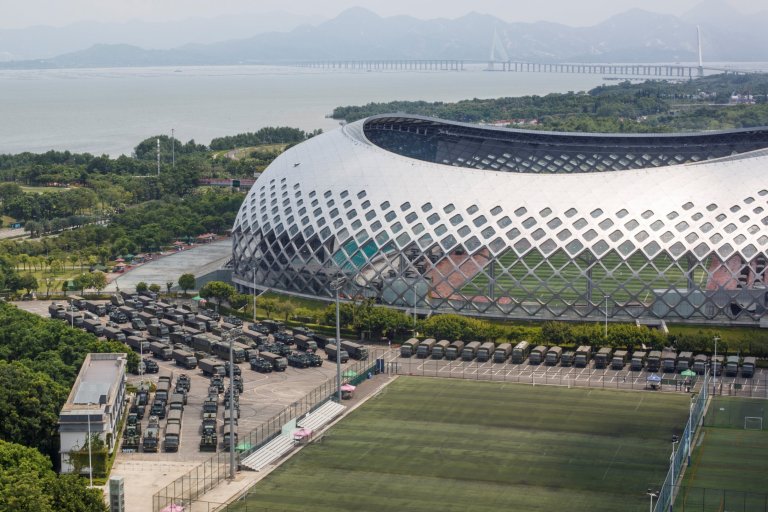
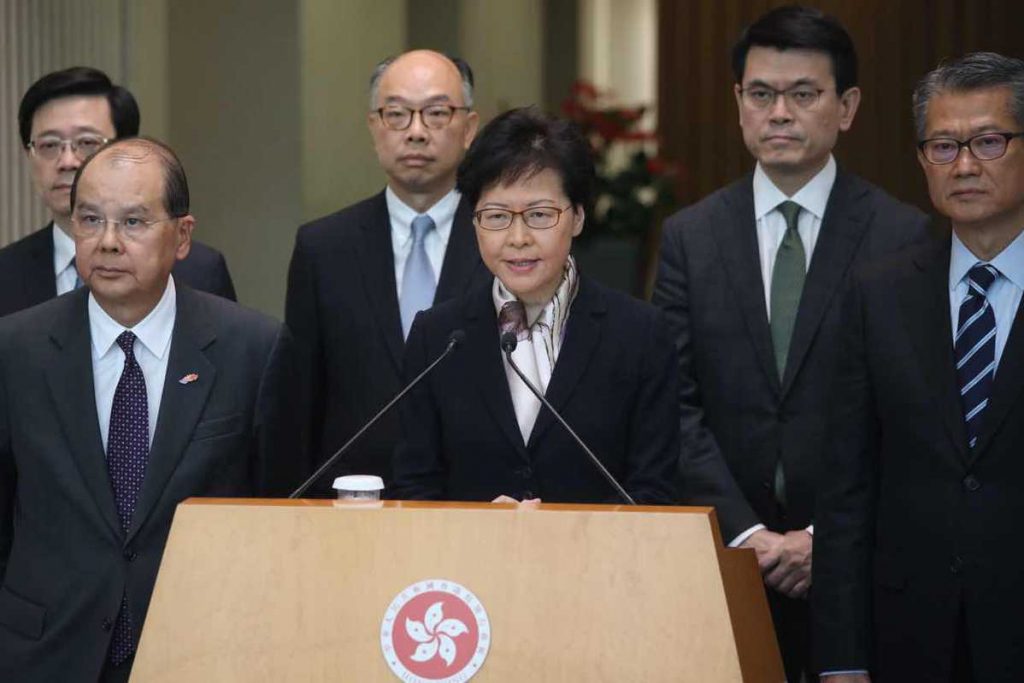
Carrie Lam also sounded the alarm when she said, that the protests are pushing Hong Kong into an abyss, “Violence, no matter if it’s using violence or condoning violence, will push Hong Kong down a path of no return, will plunge Hong Kong society into a very worrying and dangerous situation,” …. “Let’s set aside differences and spend one minute to look at our city and our home. Could we bear to push it into an abyss where everything will perish?” https://www.channelnewsasia.com/news/asia/hong-kong-protests-carrie-lam-police-violence-path-11804274
Beijing also up their rhetoric describing the recent protest at the Hong Kong airport as “terrorists-like” – https://www.aljazeera.com/news/2019/08/china-slams-terrorist-actions-hong-kong-protesters-190814085332915.html
The protest itself also did not seem to be waning or weakening, despite falling public support, due to the disrupting nature of their protest (at the Airport and MTR stations). At this rate, the Chinese government is likely to intervene militarily to crush the protest and bring about law and order. As long as the protests continue at the current intensity, we will be seeing the PLA marching into Hong Kong very very soon.
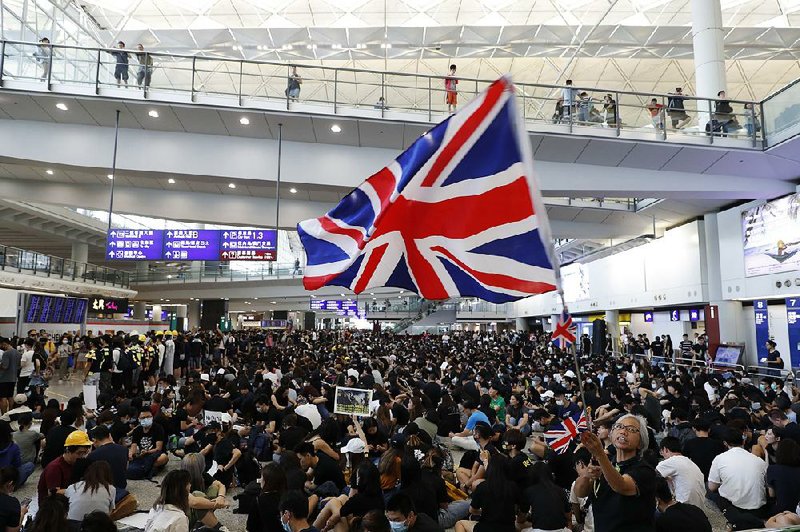
Photo source: ArkansasOnline.com
My view is, the protest is not going to wane, because the protesters are probably betting on it, hoping for international intervention – since they legally have no rights to actually ask for what they asked for, and eventually they going to be fully part of China anyway; the PLA will be deployed into Hong Kong in direct reaction to the continued protest.
THE SLIPPERY SLOPE
As the protest will likely to rage on, China will be forced to take action and deploy the PLA in Hong Kong – as to stamp their authority and draw the line where “enough is enough” to the Hong Kongers.
Related Article: Tiananmen 2.0 Will Not Happen In Hong Kong
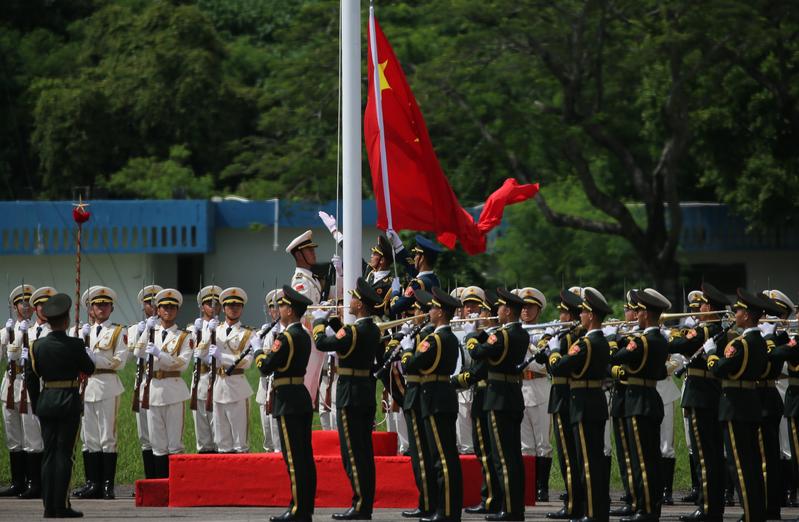
But the true problem comes when the PLA succeeded in taking control of Hong Kong, where Beijing’s restraint will be truly tested. Will Beijing able to give up control back to the Hong Kong government after law and order is reinstated? Will Beijing able to refrain from widespread arrests of protest leaders and opposition politicians? Will Beijing force through an even more controversial extradition legislation? Will Beijing simply just “annex” Hong Kong, causing China to descend into a new level of political mayhem?
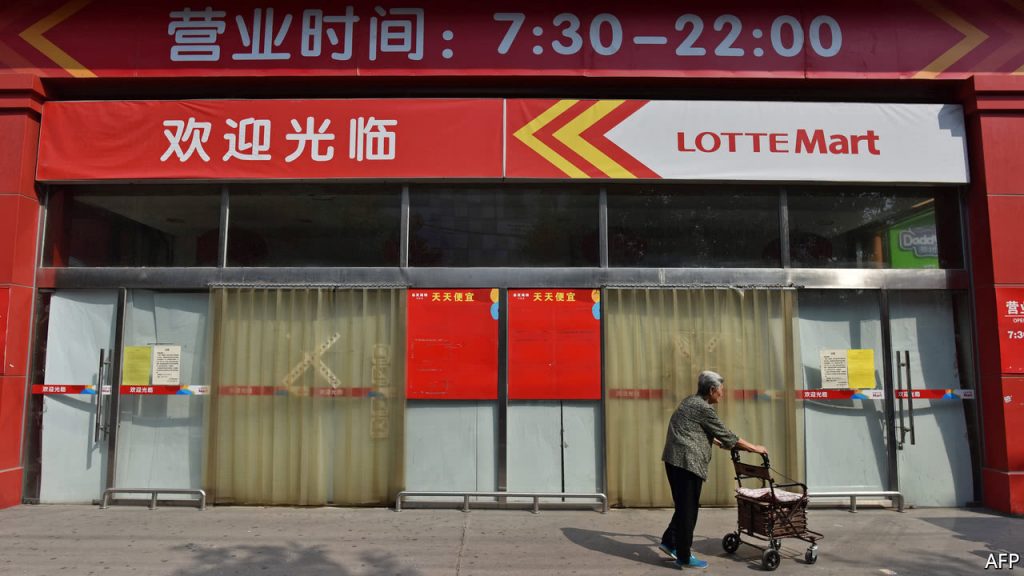
The outright defiance of Hong Kong against the Chinese government is definitely going to incite heavy retaliatory response once China take effective control of Hong Kong (perhaps even via martial law) and it is not going to help with the rising nationalism that is sweeping China in recent years, due to all the economic success and chest-thumping.
But any punitive actions taken by China against Hong Kong would spell disaster for China’s foreign relations and global standing. Under the backdrop of a slowing economy, growing trade war, collective suspicion over the Belt and Road projects and increasing paranoid against Chinese military threat by China’s neighbours – China’s series of geopolitical “missteps” (or at least missteps in my opinion) had badly damaged China’s image and contributed to rising Sino-phobia around the world. It would be paramount for Beijing to consider their options carefully and practice restraint.
However, given the record and recent history of decision making by the Chinese government, be it over the South China Sea, the trade war, or even the way they dealt with South Korea THAAD missile shield issue, they have a lot of trouble restraining themselves from abusing their enormous overwhelming power over their adversaries via punitive measures. I have serious doubts about their abilities to “control themselves”.
Hong Kong MIGHT become that nudge, that pushes the world over the edge against China collectively. This would gift Trump the perfect ammunition rally the world against Chinese influence and might lead to unimaginable consequences for China.
HONG KONG’S LAST HOPE IS WITH CARRIE LAM
Ironically, what stands between a China “invasion” of Hong Kong, and Hong Kong staying politically independent (largely) from China – is the Hong Kong’s Chief Executive, Carrie Lam.
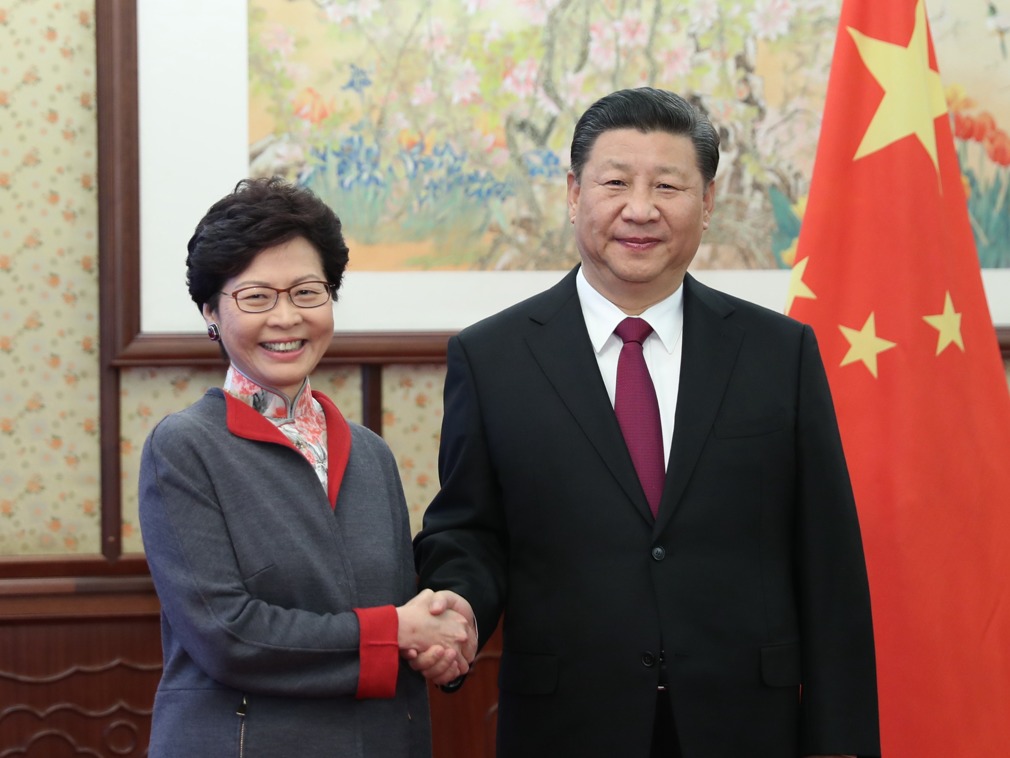
Chinese President Xi Jinping, right, meets with Hong Kong Chief Executive Carrie Lam in Beijing in 2017. (Photo: Xinhua)
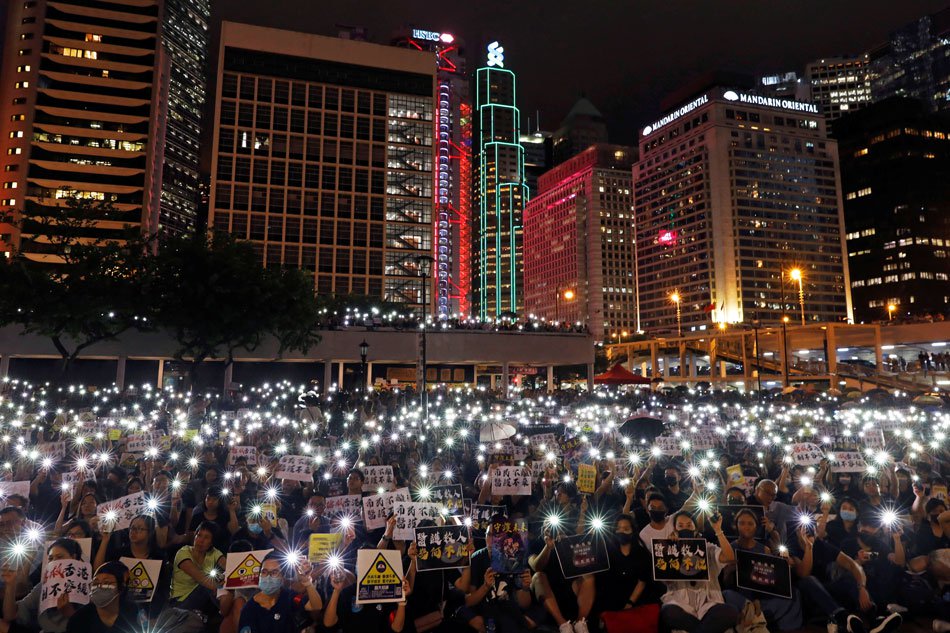
She had been consistently trying to calm down the situation, balancing herself precariously between China, the angry protestors and the burnt-out police force. While offering words of conciliation towards the Hong Kong public and protesters, she had consistently avoided criticizing the police force, that had stood loyally and dutifully in their post – to stand bravely against their own people in the streets and the airport – braving the scorn that comes from their own fellow citizens.
While at the same time, Carrie Lam continues to keep Beijing’s faith in her and retain her position as the de facto leader in Hong Kong. But the reiteration of faith & support for her on 6th August 2019 by Beijing, to me, reads like a subtle hint of displeasure in her management of the crisis. Like in all decent public relations crisis management playbook, public statement of faith in the leader by the “board” often precedes the eventual sacking and boardroom fall out.
But for now, let’s keep our fingers crossed – and hope Hong Kong do not cut short the lifespan of their precious (limited) democracy and freedom before its time is up.
Cover Photo: Protesters march with a flag calling for Hong Kong independence in Hong Kong on Sunday, July 7, 2019. (AP PHOTO/KIN CHEUNG))

